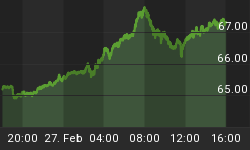The latest German Ifo business survey, released yesterday, revealed a quite-astonishing level of optimism among German companies. The main index jumped from 106.8 last month to 108.7 - the highest level since the index was first compiled, back in the giddy days of reunification in 1991. Also surprising was the fact that the business expectations index, which looks forward six months, rose for the third month in a row, climbing from 100.1 in November to 102.5. Once again, firms reported good opportunities for their export business. And, the current conditions index hit 115.3 (113.9 in November). All five components of the main index saw improvement - trade and industry, manufacturing, construction, wholesaling, and retailing.

The Ifo continues to tell us that the German corporate sector expects to shrug off the impact of January's much-talked-about three percentage point hike in the VAT pretty quickly. Companies are looking past Q1 and anticipating continued solid growth thereafter.
German data to look for over the next couple of weeks include preliminary inflation numbers for December (probably on December 22), the latest GfK consumer sentiment survey (December 29), December's unemployment data (January 3), and November retail sales (January 4-8). The next Ifo survey release is January 25.
The breadth of optimism in the Euro-zone's largest economy, and the upward trend over the past twelve months, are impressive, but do not tell the whole story of the 'zone. Today's business confidence indicator from the Belgian National Bank (BNB) was a tad more cautious. As we've noted before, thanks to Belgium's strong trade ties with its neighbors (about 80% of Belgium's manufacturing output is sold abroad, mostly to fellow EU members), the BNB's business confidence index is a reliable leading indicator - about six months out - for GDP growth in the Euro-zone as a whole. While the headline index remained firmly in positive territory, it slipped for the third month in a row, from 3.5 in November to 2.5 in December. This month, most of the decline came from the manufacturing sub-component, which fell back from 4.1 in November to 2.4, as both domestic and export orders slowed after November's upward blip. The manufacturing component numbers have been fairly volatile in recent months, and it will be interesting to see how the trend develops heading into 2007.

For now, it looks as if Euro-zone GDP growth will remain impressive heading into Q1 2007, but could start to slow down some by mid-year. We may get an early clue on what happens after that from the next BNB business survey, on January 24.















